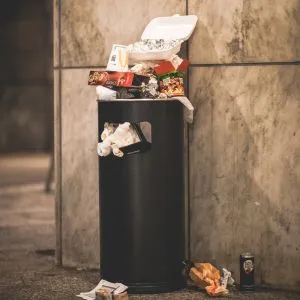Heating energy is being dumped on our municipal landfill sites.
Our landfill sites are being clogged by plastic waste, which battles to bio-degrade over time.
Alternative options for managing plastic waste has been identified as mechanical recycling, cement kilns, power station and energy recovery by incineration.
Having plastic on landfill sites should be the last option. About 0.5kg per person per week of paper and plastics can be incinerated to produce heating energy.
Firstly, the plastic waste needs to separated from the organic waste, washed and dried. The next step is shredding the plastic into small chips. A variety of plastics are typically collected and mixed, resulting in a variation of heating energy. Some plastics have 46Mj/Kg and other have 26MJ/Kg, but surprisingly when mixed together, they have an average of 42MJ/Kg.
A DDS Bomb Calorimeter is used to determine the energy of the plastics in 0.5g size samples.
Our calorimeters have the ability to rapidly fire samples without jeopardizing accuracy, ideally suited for this type of application. With low maintenance costs and intuitive instrument operation, it is the best calorimeter for the job.
Besides, our waterless technology allows the calorimeter to operate without the need of water and air-conditioning, saving a massive amount of electricity, reducing running cost and reducing the reliance on fossil fuels. Particularly in the waste/alternative energy arena, you want an instrument which compliments your vision.
Plastic waste as an alternative energy source is a viable solution for the future, especially since its energy is typically 90% more than the average coal of 22MJ/Kg. Paper and wood have an average energy of 20MJ/Kg.

Related Applications
Coal Analysis

The coal industry is the traditional application of calorimeters because coal has a variety of properties, apart from being black.
Read MoreExplosives Analysis

Only explosives which can be ignited by heat from the calorimeter's firing circuit can be tested in the oxygen calorimeter.
Read MoreFuel Analysis

As a general rule, volatile fuels are measured very seldom because they are very consistent.
Read More
